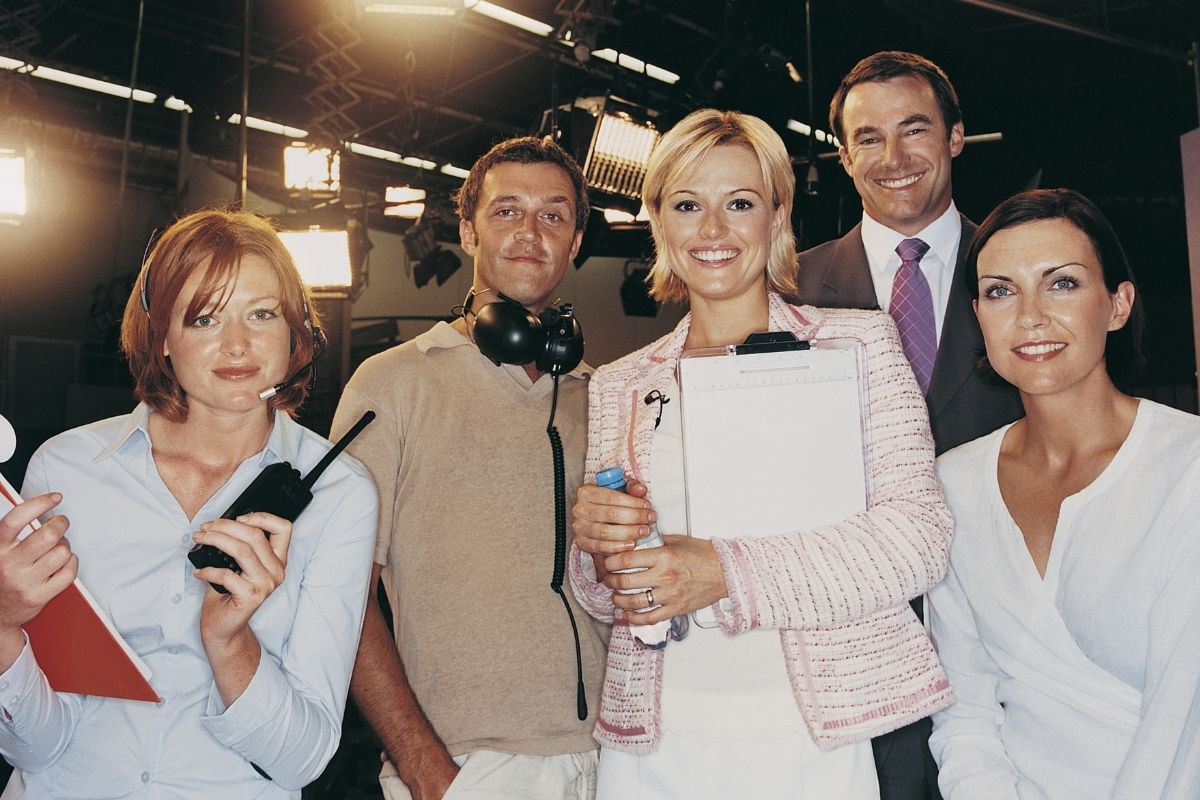TV shows are a great place for writers to express their creativity, but they also have to be able to work with other writers. No TV show has just one writer taking care of all the writing, it is a collaboration of creativity.
Writers have to conceptualize, develop, outline, and write along with a room full of other writers with their own ideas. It can be very competitive and intimidating, but it’s also a great way to learn and get new perspectives on a story.
So, how many writers are needed for a TV show?
Honestly, it depends. There can be anything between six or seven writers for one show. For dramas, there are often as many as ten writers. It all depends on the specific show and how many writers the higher-ups want to hire.
It’s not as simple as writing your ideas for the show and building on them either. You have to get the producers and showrunners to like what you wrote as well.
If you’re curious to know who is in the writers’ room of TV shows, we’ve got you covered. We’ll take a look at that and also discuss what their unique roles are and how they work with the writers.
But first…
What Does a TV Writer Do?

TV writers are skillful writers who prepare the scripts for shows that include thrillers, comedies, soap operas, and everything in between.
Some writers are given the task of writing previews of upcoming shows to entice viewers into watching again. Others write the advertising copy or plot lines.
The dialogue, the character’s actions, and the situations taking place in the story are also the writers’ responsibilities.
If there was a line in a show that made you chuckle or a situation that made you sit on the edge of your seat, a writer had to think it up and write it so it makes sense and works for the TV show.
TV writers have to write for specific audiences and aim to fill a specific time slot, which means this can sometimes be a rather technical job. They work under strict timetables and often being on time is more important than being creative.
There are freelance writer jobs as well as full-time positions.
Related to: Looking for Writers for our TV Section (2013) │Change Places: The Role of the TV Showrunner
Hierarchy of the Writers’ Room
Here’s a look at the different people who are part of the writers’ room and what exactly they do:
Executive Producers

Executive producers are also known as showrunners and they — as the title suggests — run the show.
They are in charge of hiring staff, making sure the script makes sense, doing the casting, planning and sticking to the budget, working out the schedule, and everything else related to the show.
Any final decisions are made by the executive producers.
Co-Executive Producers
As the second-in-charge, the co-executive producers can also approve script drafts if the executive producers aren’t around.
Often, executive producers will delegate some of their work to the co-executive producers if there is a lot of work.
Typically, the final say remains that of the executive producer, but co-executive producers will take on as much of the important tasks as they have to.
Supervising Producers

This is one of the best positions for staff writers to aim for before they finally become one of the big shots. These are the upper-level writers that have a lot of responsibility.
They work directly with the writing staff to develop the show’s story development and take care of the episodes’ actual writing.
Producers
The producers are like the captains of the TV show and are usually highly seasoned writers. They are important and have a say in the show’s production, casting, and the overall creative direction the show takes.
Staff writers need to report to the producers.
Co-Producers
Co-producers must answer to the producers and can do as much work as the co-executives do for the executives. Producers will often delegate their duties to their co-producers if the work becomes a bit much.
These guys have to take care of all the decisions that staff writers are not allowed to make or aren’t qualified for.
Story Editors

You’ll typically find that story editors have been with the TV show for a while and know everything there is to know about the characters, the lore of the show, and more.
They are the ‘more important’ staff writers that actually get credit guarantees.
Staff Writer(s)
Sometimes, staff writers are underappreciated and undervalued because they work hard but don’t get the kind of recognition that story editors do.
They do a lot of the writing work and have to take care of key story elements or character elements.
Writers’ Assistants
Writers have assistants to help ensure they do their best work. These guys take notes during story editors’ and staff writers’ brainstorming sessions. They must organize all the ideas and concepts that are discussed.
Sometimes, writers’ assistants also have to take care of proofreading the scripts and merging notes as scenes are planned to ensure everything is cohesive.
Writers’ Personal Assistants
These folks don’t do any writing and they don’t take any notes. They are there to do the tasks that writers are just too busy to bother with. Ringing phones and other menial tasks befall writers’ personal assistants.
They have to buy lunch, get coffee, make sure the kitchen is stocked, and organize the writers’ room after a busy day.
Conclusion
As you can see, there are many roles to fill when making a TV show, and the writers’ room can get rather full.
In general, there will be seven or eight writers working on one show, as well as the higher-ups and assistants that keep things running smoothly.

